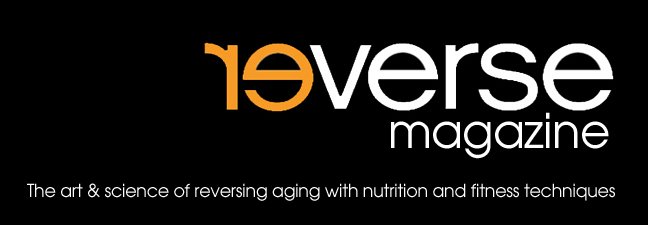"Vision is the state of seeing." - Wikipedia
Vision Quest is a time of intense communication when a person can receive profound insight into themselves and the world. This insight, typically in the form of a dream or vision, relates directly to their destiny. Robin White 56, who makes her living as a fine artist and a graphic designer, needed to deal with vision problems. This is her personal story:
"I have been wearing glasses since age 45 for my presbyopia or "old age vision". I started like everyone - going to the drugstore and getting magnifiers. But, gradually as my vision started to fade, I had go to the eye doctor and get prescription glasses. I started using multi-focal contacts five years ago, and that was a big improvement, but they did not completely solve my up close vision, so I found I STILL needed glasses for reading, computer or even a cell phone.
Last year, at age 55, I noticed my vision getting a lot worse. I could not make it through a box of contacts (6-month supply) before I felt like my vision was changing. I said to my eye doctor: "My eyes seem to be getting worse, but SO quickly, is this NORMAL?" He seemed to brush it off, so I just accepted it as yet another drawback of the aging process. Little did I know there was more to it.
A friend who had presbyopia and astigmatism said I should go see if Lasik could help me, because she had it done, and was very happy with the results. She went to Millennium Eye Center, here in South Florida. They are also the official Lasik provider for Miami Dolphins, Miami Heat & The Marlins. They did an extensive series of scans, measurement and examination to my eyes to determine if I was a candidate.
One of the examining doctors finally came in and she said "You are a candidate for Lasik, but there's just one problem… "I said "What's that?" She said "You have cataracts." My jaw dropped. I could NOT believe what she was saying. I replied "But, but ....my eye doctor NEVER told me that." Then it started to make sense. I said "Could that be the reason my eyesight kept changing so fast?" She said "Yes, that's actually one of the symptoms of cataracts." She said that it would be advisable before I make any decision, to see Dr. Schatz at SightTrust, their branch/sister company that specializes in cataracts to see what they would recommend.
I had always believed cataracts were something you got when you were MUCH OLDER (like in your 80's), and here I was only 55 and already my vision was being affected? It was unbelievable. Now since doing some research, I have come to find out that almost everyone over the age of 50 has some degree of cataract formation. It really got me wondering…
"How many people just like myself are NOT BEING DIAGNOSED PROPERLY so they can take care of the problem if they so choose?
"How many people just like myself are NOT BEING DIAGNOSED PROPERLY so they can take care of the problem if they so choose?
After meeting Dr. Schatz at SightTrust Eye Institute, I really felt comfortable. The very personalized service and care they provide really puts you at ease. Just like Millennium, both Dr. Schatz and the facility & staff are first class. Dr. Corey Lessner, Medical Director and Lasik surgeon searched for 18 months to find Dr. Schatz, who specializes in cataract surgery. The LensSX equipment he uses is true "State of the Art" technology, and only about 250 of these even exist in the world, with only about 4-5 now in Florida. Dr. Schatz specializes in the use of this equipment and has become a true master in the art of cataract surgery. I am so happy I found him.
The cataract surgery using this advanced technology takes away the cataract, puts in a new corrected lens, (in my case a multi-focal lens), and corrects the astigmatism all in one surgery in 10 minutes.
After having this surgery I am happy to report that I have 20/15 vision. A real miracle of medicine and technology. It's the first time I can thread a needle with no glasses in 16 years!"
Current vision technology is truly space aged and continues to improve. Some important terminology can provide clarity in understanding the science and conditions that relate to great vision.
Cataracts - An opacification of the normally crystal-clear lens inside the eye, which causes decreased vision. This is a bilateral condition (affects both eyes), although it is common for one eye to be somewhat worse. The natural lens sits behind the iris (color of the eye) and is responsible for 1/3 of the eye’s focusing power. The lens can also change shape as you attempt to focus up close, allowing for near vision. The ability to see up close slowly diminishes beginning in the mid-forties – a term called presbyopia. In addition, as we age, or after being chronically exposed to certain chemicals (steroids and other medications), the lens loses its clarity and starts yellowing. Everyone who lives long enough will eventually get cataracts, which are the leading cause of reversible blindness in the world." - www.sightrust.com
RK - Radial keratotomy is a refractive surgical procedure to correct myopia [nearsightedness] that was developed in 1974, by Svyatoslav Fyodorov, a Russian ophthalmologist. Though it has been largely supplanted by newer operations, such as photorefractive keratectomy, LASIK, Epi-LASIK and the phakic intraocular lens, RK remains popular for correction of astigmatism in certain patients.
LASIK or Lasik - [Laser-Assisted in Situ Keratomileusis], commonly referred to as laser eye surgery, is a type of refractive surgery for the correction of myopia, hyperopia [far sightedness], and astigmatism.
CK - Conductive keratoplasty [CK] is a type of refractive surgery that uses radio waves to adjust the contour of the cornea by shrinking the corneal collagen around it. It is used to treat mild to moderate hyperopia. It is a non-invasive alternative to other types of eye surgery.
Astigmatism - A visual defect in which the unequal curvature of one or more refractive surfaces of the eye, usually the cornea, prevents light rays from focusing clearly at one point on the retina, resulting in blurred vision.. Studies have shown that about one in three people suffers from it.The prevalence of astigmatism increases with age. Although a person may not notice mild astigmatism, higher amounts of astigmatism may cause blurry vision, squinting, asthenopia, fatigue, or headaches
PRK - Permanently changes the shape of the anterior central cornea using an excimer laser to ablate (remove by vaporization) a small amount of tissue from the corneal stroma at the front of the eye, just under the corneal epithelium. This operation is more common in the Spec Ops and military community.
For more information about the very best quality Lasik or Cataract surgery, please contact the dream teams at Millenium and Sightrust.
Remember, they are the only eyes you have, so treat them well.
Remember, they are the only eyes you have, so treat them well.












